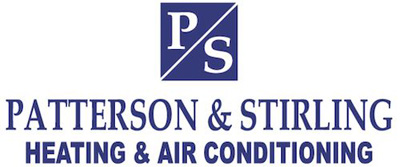
If you’re uncertain whether your Erie house has bad indoor air quality (IAQ), it probably does.
We are indoors a lot. In fact, we’re in a building up to 90% of the time, according to the U.S. Environmental Protection Agency. And the air inside homes could be 2–5 times more polluted than outdoors, which may create long-term health problems.
Most Common Origins of Unsatisfactory IAQ
We’ve compiled a list of the most frequent origins of poor IAQ, the problems they cause and how you can fix these indoor air pollutants. If you’re concerned about the air inside your home, we recommend talking with a expert like Patterson & Stirling about which options are ideal for your home.
Volatile Organic Compounds
Volatile organic compounds, or VOCs, are fumes released by common household products.
They’re found in paint and stains in addition to:
- Furniture
- Carpet
- Building materials
- Cleaning products
- Cosmetics
- Air fresheners
- Candles
When these vapors accumulate inside, they may irritate your eyes, nose and throat. They may also result in headaches and nausea. Regardless of whether your residence is in a rural or industrial space, an EPA study found indoor levels of these pollutants can be 2–5 times greater than the air outdoors.
Always adhere to the manufacturer’s directions when using paint or cleaning supplies. Opening a window can help vapors disappear faster.
Air purification systems can also better your air. This unit partners with your heating and cooling unit to freshen indoor air. When seeking one, ensure it’s specifically made to eliminate VOCs.
Dust and Pet Dander
Dust and pet dander can irritate health problems like asthma and allergies, especially when it continually gets moved by your residence’s comfort unit. While you can vacuum more routinely and install an improved air filter, an air filtration system might be a better match.
This solution hooks to your HVAC equipment to give powerful filtration. Some models provide hospital-level filtration for eliminating particles and bioaerosols.
Persistent Odors
Newer houses are closely sealed to boost energy efficiency. While this is good for your utility bill, it’s not so good for your IAQ.
Musty odors can hang around for a greater amount of time as your home is pulling in reduced fresh air. Since keeping your windows open all the time isn’t an option, here are two methods you can make your indoor air smell cleaner.
An air purification system is put in your ducts to neutralize odors before they are redistributed. Find one with a carbon filter and the ability to break down harmful VOCs. This equipment can also help keep your household healthy by wiping out most bacteria and normal allergy triggers like pollen and mold spores.
A ventilation system takes out musty indoor air and exchanges it with clean outdoor air. There are two models of units (heat recovery and energy recovery), so check with our professionals for more info on which type is ideal for your home.
Unsteady Humidity
It’s important your home’s humidity stays even. Air that’s too moist can lead to mold, while dry air can create respiratory troubles.
Our professionals suggest 40–50% for top comfort. To keep yours in balance, think over getting a whole-home humidifier or whole-home dehumidifier with your heating and cooling system.
Rather than having to drag a humidifier from room to room, this solution delivers balanced humidity around your house.
Carbon Monoxide
Carbon monoxide is colorless gas you can’t smell. It’s caused by insufficient combustion in fuel-burning equipment, like gas heating systems, water heaters or fireplaces.
It produces an extreme health risk. In small levels, it can create flu-like sickness like headaches and nausea. It can be deadly in big levels.
We recommend regular furnace maintenance to make sure your system is running properly. This job allows our technicians to pinpoint problems before they begin, including malfunctions that can cause carbon monoxide leaks.
The best method to keep your home free of carbon monoxide is to put in detectors. These alarms need to be on each floor by bedrooms and living spaces.
Improve Your Residence’s Air Quality with the Patterson & Stirling Pros
Informed that your house has poor air quality but not sure how to improve it? Or unsure which solution is ideal for you? Give our approachable HVAC professionals a call at 814-308-0416 or contact us online now. With free estimates and expert assistance, we’ll help you locate the right equipment for your family and budget.


